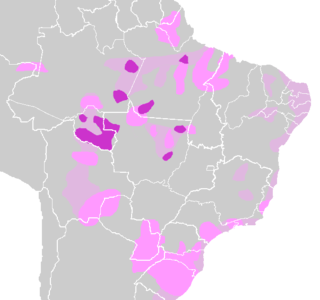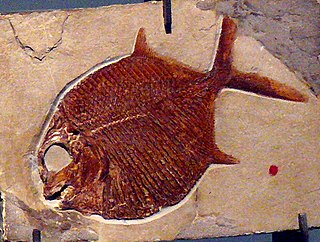
Indigenous peoples in Brazil or Indigenous Brazilians, comprise a large number of distinct ethnic groups who have inhabited what is now the country of Brazil since prior to the European contact around 1500. Unlike Christopher Columbus, who thought he had reached the East Indies, the Portuguese, most notably Vasco da Gama, had already reached India via the Indian Ocean route when they reached Brazil.
The Tupi people were one of the most numerous peoples indigenous to Brazil, before colonisation. Scholars believe that while they first settled in the Amazon rainforest, from about 2,900 years ago the Tupi started to migrate southward and gradually occupied the Atlantic coast of Southeast Brazil.

Ceará is one of the 27 states of Brazil, located in the northeastern part of the country, on the Atlantic coast. It is the eighth-largest Brazilian State by population and the 17th by area. It is also one of the main tourist destinations in Brazil. The state capital is the city of Fortaleza, the country's fourth most populous city.

Tupi–Guarani is the name of the most widely distributed subfamily of the Tupian languages of South America. It includes fifty languages, including the best-known languages of the family, Guarani and Old Tupi.
A cacique is a leader of an indigenous group, derived from the Taíno word kasikɛ for the pre-Columbian tribal chiefs in the Bahamas, the Greater Antilles, and the northern Lesser Antilles. In the colonial era, Spaniards extended the word as a title for the leaders of practically all indigenous groups that they encountered in the Western Hemisphere. In Spanish America, Brazil, Spain, and Portugal, the term also has come to mean a political boss or leader who exercises significant power in the political system known as caciquismo.

Classification of indigenous peoples of the Americas is based upon cultural regions, geography, and linguistics. Anthropologists have named various cultural regions, with fluid boundaries, that are generally agreed upon with some variation. These cultural regions are broadly based upon the locations of indigenous peoples of the Americas from early European and African contact beginning in the late 15th century. When indigenous peoples have been forcibly removed by nation-states, they retain their original geographic classification. Some groups span multiple cultural regions.

Goiana is a city in Brazil in the northeast of the state of Pernambuco, about 65 km north of the city of Recife.

António Filipe Camarão was an indigenous Brazilian from the tribe of the Potiguara near the Rio Grande do Norte area of the Portuguese colony of Brazil. His original tribal name was Poti, which means prawn. He was born in the neighbourhood of Igapó, in Natal, or, according to some other historians, in the state of Pernambuco, or in Aldeia Velha.

Dutch Brazil, also known as New Holland, was the northern portion of the Portuguese colony of Brazil, ruled by the Dutch during the Dutch colonization of the Americas between 1630 and 1654. The main cities of the Dutch colony of New Holland were the capital Mauritsstad, Frederikstadt, Nieuw Amsterdam (Natal), Saint Louis, São Cristóvão, Fortaleza, Sirinhaém and Olinda.

Iracema is one of the three indigenous novels by José de Alencar. It was first published in 1865. The novel has been adapted into several films.
The Caetés (Kaeté) were an indigenous people of Brazil, linguistically belonging to the Tupi people.

Pycnodontiformes is an extinct order of bony fish. The group evolved during the Late Triassic and disappeared during the Eocene. The group has been found in rock formations in Africa, Asia, Europe, North and South America.

Ariano Mário Fernandes Fonsêca is a brazilian lawyer and politician, affiliated to the Party of Brazilian Social Democracy (PSDB). He is great-nephew of the former governor of Paraíba José Fernandes de Lima. In his career was four times State Representative.
The Tapeba people are an indigenous people of Brazil, who formed from the remnant populations of tribes around the Village of Nossa Senhora dos Prazeres de Caucaia in Ceará, Brazil. They are native Portuguese-speakers and are also known as Tapebano and Perna-de-pau people.

Cerberilla is a genus of sea slugs, aeolid nudibranchs, shell-less marine gastropod mollusks in the family Aeolidiidae.
Spurious languages are languages that have been reported as existing in reputable works, while other research has reported that the language in question did not exist. Some spurious languages have been proven to not exist. Others have very little evidence supporting their existence, and have been dismissed in later scholarship. Others still are of uncertain existence due to limited research.
Cerberilla potiguara is a species of sea slug, an aeolid nudibranch, a marine heterobranch mollusc in the family Aeolidiidae.












